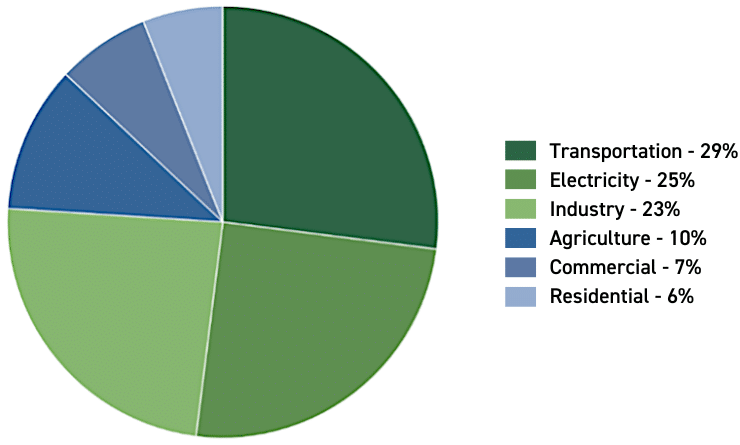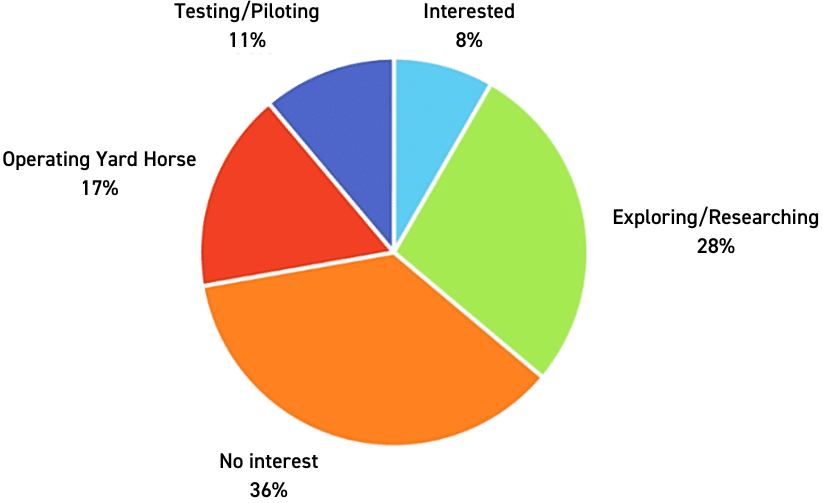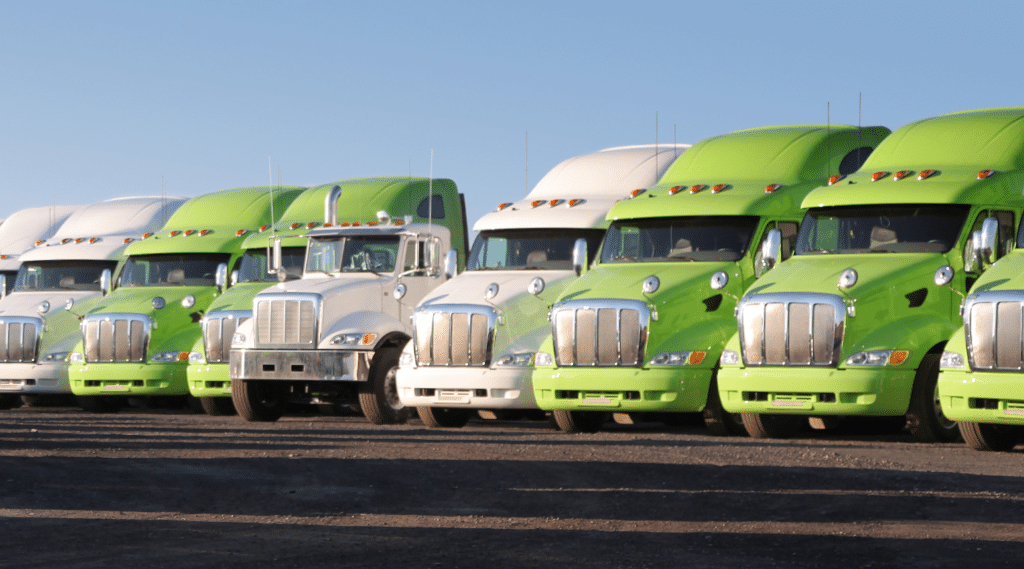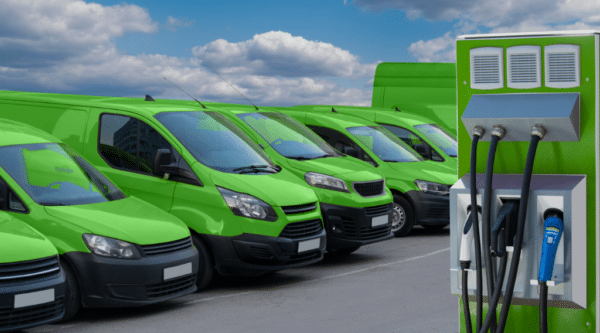The transportation industry significantly contributes to global greenhouse gas (GHG) emissions, with a 29% share in the U.S. as of 2021, according to the Environmental Protection Agency (EPA). Fleet operators, therefore, play a crucial role in mitigating these emissions, achieving ESG objectives through sustainable mobility practices.

A rising trend sees fleets committing to ESG goals and recognizing sustainable mobility’s pivotal role. The 2023 National Private Truck Council (NPTC) Benchmarking Survey Report reveals that 72% of private fleets invest in green initiatives, with 64% exploring or adopting electric vehicles (EVs).

Furthermore, IDC forecasts that by 2024, 30% of companies will leverage ESG metrics and data management for sustainable cost and competitive advantages. Simultaneously, 75% of large enterprises will integrate ESG data management and reporting software, driven by emerging legislation and growing stakeholder expectations.
Fleet operators can champion corporate ESG goals through:
- Analyzing gas/diesel consumption across all vehicles and depots.
- Utilizing telematics for efficient route planning, minimizing idling, and reducing emissions.
- Developing a carbon reduction strategy, setting clear goals, and establishing regular monitoring and reporting processes.
- Understanding current EPA smog vehicle emission regulations and coordinating turnover of internal combustion engine (ICE) vehicles with EVs.
- Navigating state-specific regulations, like those outlined in the Electrification Coalition’s 11 state guides.
- Exploring tax credits and incentives, such as the Low Carbon Fuel Standard (LCFS).
- Assessing the impact of fleet electrification on scope 1 emissions, that improves air quality and noise levels in local communities.
- Procuring energy from renewable sources to address scope 2 emissions and reduce dependence on fossil fuels.
- Not doing it alone – learning from the experiences and best practices of other fleets.
- Adopting a holistic approach to ESG, beyond just environmental considerations, exemplified by Ferguson’s FY2023 ESG Report “Building Momentum, Sustainably.”
Transitioning to electric fleets, while beneficial, presents challenges, such as the complexity of establishing charging infrastructure. Evaluating whether a Do-It-Yourself (DIY) or Charging-as-a-Service (CaaS) model suits your needs is a critical first step. Many fleets are finding value in the CaaS model, allowing them to concentrate on their core business and mitigate fuel and technology risks. Selecting a partner with fleet expertise and aligned objectives is crucial.
Electrada is committed to being your trusted partner in EV fleet charging. Our 360 CaaS model simplifies the transition, ensuring fuel remains an operating expense, now coupled with the benefits of zero-tailpipe emissions and stable pricing. Electrada 360 CaaS offers a low-risk, innovative solution to fleet electrification, backed by an industry-leading 99% uptime performance guarantee.



